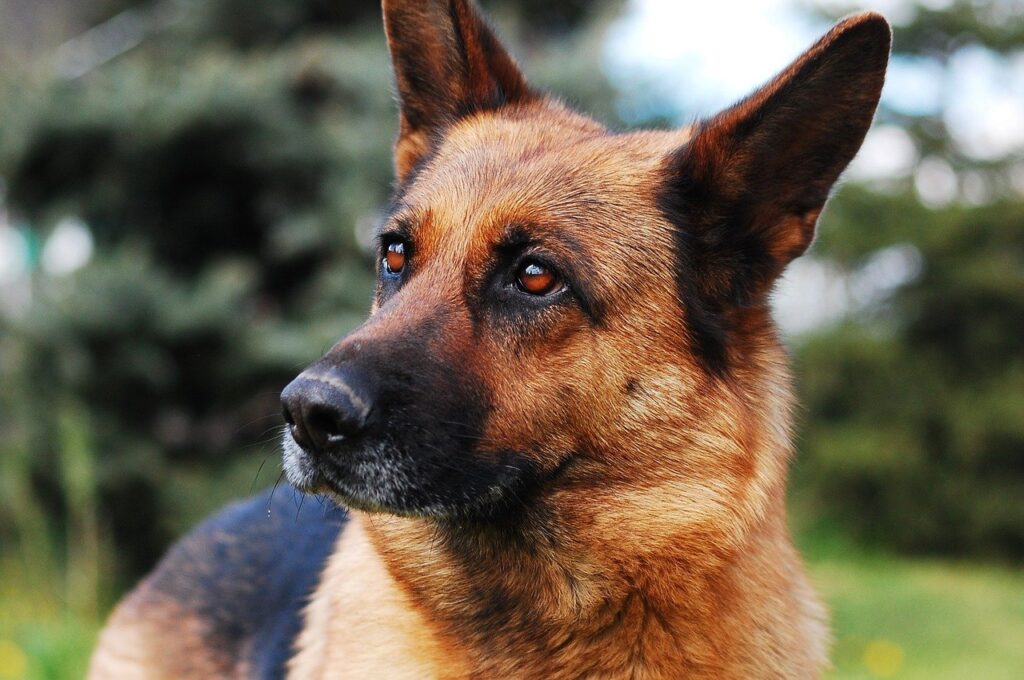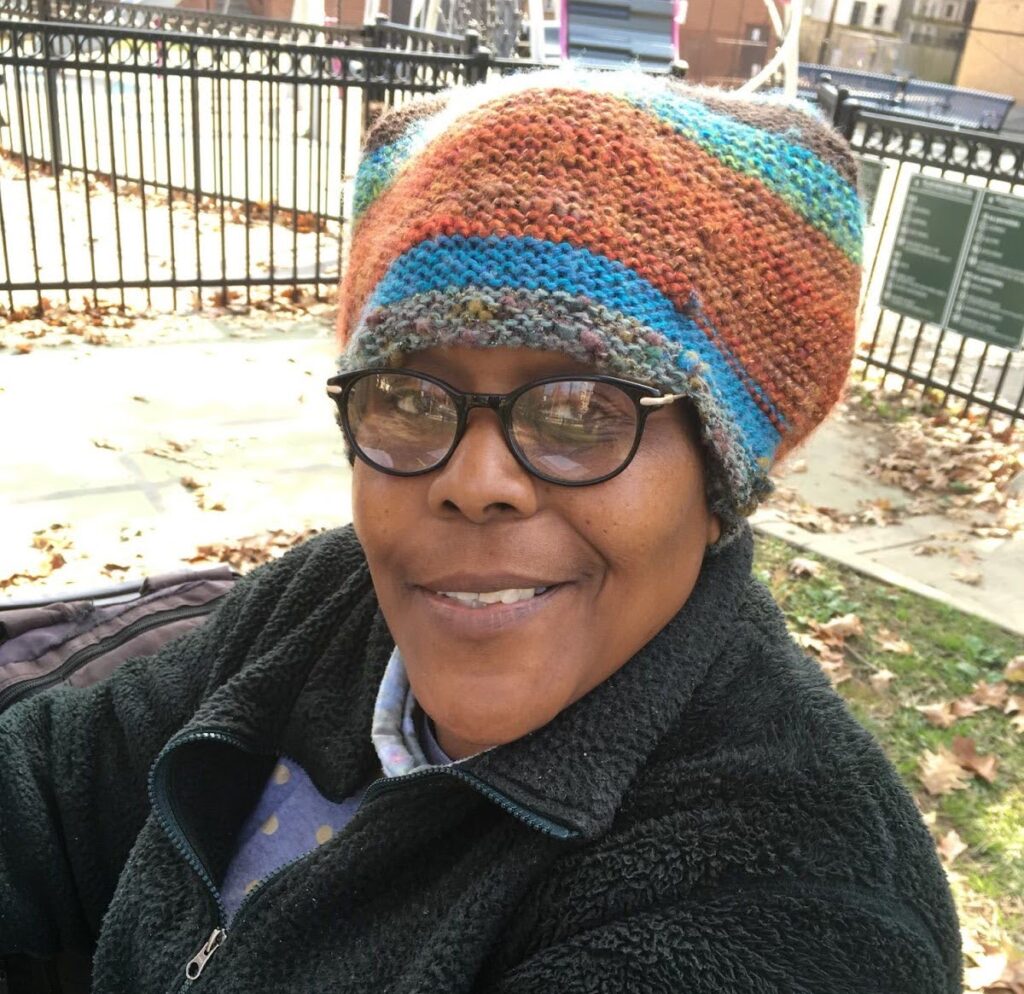Hattie was less than pleased when Harold brought the mutt home, covered in mud and stinking of shit and gingko leaves. The dog looked like his eyes were infected, and by the touch, he was nothing but fur on a skeleton. Harold had, of course, forgotten the cigarettes.
A good bath, first for the dog and later for herself, calmed her. But it wasn’t until the dog had had a bowl of milk and closed his eyes to sleep that Hattie began to feel motherly toward him.
“It is hard to hate something with a yawn bigger than its face,” Hattie explained pointedly to Harold when he teased her about the change of heart. “Besides, taking care of babies is what I do.”
She named the dog “Peanut” and called him “P.” A fitting name for a little tan dog, thought Hattie. “My sweet P.”
“P,” Barnum thought, should stand for “Pain in the Ass.” The little shit never did outgrow his constant yelping. God damn. It’s not like he was attention deprived.
When the yelping did stop forever, Hattie insisted on a new dog right away. She called the new mutt Allie a name Harold thought showed just how much she considered the things her kids. Hattie didn’t like that. “Almond,” she insisted. “They’re pets, Harold. ‘Allie’ is short for Almond. The Almond of my eye.” She looked to the ceiling affectionately.
“She isn’t an Almond. You just need a new Peanut. Call her what she is.” What the dog was had failed to make Harold think of almonds or even peanuts and instead made him think of winos covered in the lint from his argyle sweater. The only endearing thing about this too-thin dog was the shape of her face, which made passersby imagine she was smiling at them, though the hair around her mouth made some think she was smiling from having the mange.
When Allie passed on, probably of old age, Hattie took some time to mourn. Mourning, though, was followed closely by Beau, a basset hound with the most pitiful look Harold had ever seen. Hattie said he just hadn’t spent much time looking at himself in the mirror in the late 1980s.
Nonetheless, Hattie liked sad eyes. It was Harold’s own that had caught her attention as he had walked out of her hospital back in ’58. They were fetching enough that she never bothered to check what he’d needed penicillin for, amen.
Harold hadn’t thought much about Hattie’s eyes at the time. He couldn’t have recalled the color; he knew now that they were stained oak. Sure, he thought she was a looker in that white, cotton nurse’s dress of hers. And when you’re walking out of the doc’s office with a bottle of meds for VD, it’s time to start considering lookers in white dresses. And he did.
“Hey. Can you help me out?” Barnum approached her as she eyed him over the counter of the nurse’s station.
“Yes, sir.” She was professional and polite.
“Can I get your name?” he asked.
“Hattie Jameson, RN. Is something wrong, sir?” She set down her paperwork.
“Well Hattie Jameson, I’m Harold A. Barnum, and I have got to know what a pretty thing like you is doin’ bustin’ her hump in here,” he asked, bent at the hips with his forearms on the nurse’s station.
“Working.” She resumed transferring a patient’s blood pressure from one chart to another.
“Oh, you know what I mean.” He pushed off the counter and grabbed it with his hands. “Don’t you have someone to pay the bills for you, a nice-looking lady like you? Or have the women’s liberators made it all the way from New York down here?”
She set her pen to the side and leaned over her desk as if to tell him a secret. A wave of brown hair dropped across one temple. “I’m from New Jersey, and I’m not a women’s liberator.” She seemed disgusted at the term. “But I do like my job. I make children feel better.” Her face said her point was finished.
He pouched his lips at her. “Can you make me feel better?”
“This time of the afternoon, I change catheters and colostomy bags. Would you like one of those, sir?” She stood up from her chair.
“How about you just tell me when you want me to pick you up for dinner. I took the whole day off of work to come here, so I can get you anytime.”
She paused for a moment. “I’m done at 6 and I like to shower after work. I won’t be ready until 6:20,” she explained to a tap of a pen on her thigh. “You will not be here before 6:20.”
Harold Barnum was back at the hospital to pick up Hattie Jameson at 6:12 by his watch. He married her in June of ’59 by the calendar.
That was about 35 years before the vet diagnosed Beau with cancer. Hattie refused to put him down. She nursed him as best she knew how, and he lived until May of ’96, 8 months later than that know-nothing quack gave him.
Beau was followed by Coal, a frumpish pug who had as much interest in the Barnums as a teenager might in his parents. He was quiet and kept to himself. Coal was the only dog Harold ever liked on a personal level. Anyhow, the seizures were a hoot to watch, and he never seemed any worse for them.
Hattie was less amused. Then again, she wasn’t amused by much in those days. Tired after coming home from the maternity ward, she slept most of the evening. Harold suggested she ask one of the doctors at work about it. That and the bruises. He knew for a fact he hadn’t caused them.
Hattie didn’t think that was necessary. Everyone aged.
Only Hattie was aging in dog years. She and Coal were getting old together. He went first, in his sleep.
She stayed around. Watched Harold bring a German shepherd home and befriended the little guy. Despite the fact that she couldn’t run around with him as much as she had the rest, she was a good ball roller and her lap made for a better head rest than his bed ever did.
Porter was resting in that lap the day leukemia finally exhausted Hattie completely. He was awakened by the feel of dissipating heat. And he barked at her until Harold had come home and the men in the white van had come and tossed her around like a chew toy and taken her away. He barked until Harold had talked out his tears with his friend Jim Beam. Until Jim had gone and Harold had fallen asleep in the TV chair.
When Harold fell asleep Porter stopped barking and waited. But he knew something new and unpleasant had happened in his house. Hattie had disappeared. He missed her. It made him sad. So he woke Harold. Harold might know what to do. Harold didn’t. He just struck Porter across the snout.
That was the first time Harold Barnum had ever hit Porter. And it was the only time. For several months. Until Harold was sleeping and Porter was anxious and wanted to go outside and woke Harold to take him. Then Harold had hit him again. The dog stumbled into the kitchen. Porter took several moments to let the sting leave his nose. Then he began to bark again.
“All right, Porter. Let’s take you outside. For chrissake, knock it off, will ya?” The man lowered the leg rest of the TV chair, and his legs fell to the floor barely bent. Clawing the muffin tops of the chair arms, Barnum drug his legs backward and pushed himself up to a poorly engineered stand. Porter barked in applause.
Several minutes later, after having stopped in the kitchen for a glass of water, in the bathroom to give a BM a fair go, and once more in the kitchen to eat a peculiarly pliable windmill cookie, Barnum managed to reach the entryway and get an arm in his mackinaw.
Porter sat down and scrutinized the man as he finished putting on his coat. Barnum picked the dog’s leash off one of the pegs on the coatrack. “Come on now. There ya go.” He leaned over the dog with cautious precision and smiled to himself when the metal clip went click and actually caught the loop of Porter’s collar.
Barnum opened the door and the two were immediately met with a freckling of water across their faces. Both paused to consider the situation. No. “No.” Barnum began to close the door. Porter, who stood pointed into the downpour like a proud Sir Edmund Hilary, whimpered.







